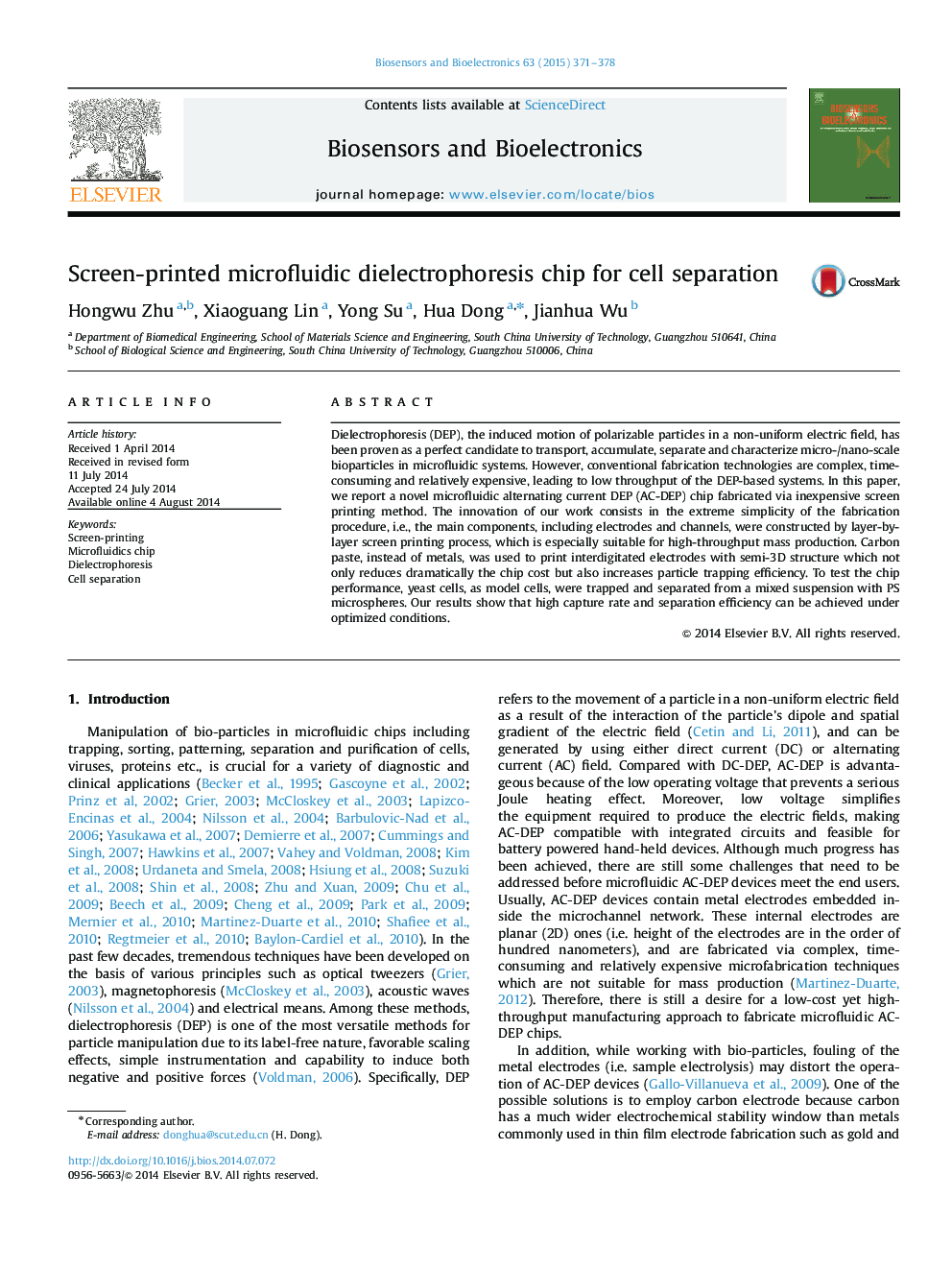| Article ID | Journal | Published Year | Pages | File Type |
|---|---|---|---|---|
| 7233201 | Biosensors and Bioelectronics | 2015 | 8 Pages |
Abstract
Dielectrophoresis (DEP), the induced motion of polarizable particles in a non-uniform electric field, has been proven as a perfect candidate to transport, accumulate, separate and characterize micro-/nano-scale bioparticles in microfluidic systems. However, conventional fabrication technologies are complex, time-consuming and relatively expensive, leading to low throughput of the DEP-based systems. In this paper, we report a novel microfluidic alternating current DEP (AC-DEP) chip fabricated via inexpensive screen printing method. The innovation of our work consists in the extreme simplicity of the fabrication procedure, i.e., the main components, including electrodes and channels, were constructed by layer-by-layer screen printing process, which is especially suitable for high-throughput mass production. Carbon paste, instead of metals, was used to print interdigitated electrodes with semi-3D structure which not only reduces dramatically the chip cost but also increases particle trapping efficiency. To test the chip performance, yeast cells, as model cells, were trapped and separated from a mixed suspension with PS microspheres. Our results show that high capture rate and separation efficiency can be achieved under optimized conditions.
Related Topics
Physical Sciences and Engineering
Chemistry
Analytical Chemistry
Authors
Hongwu Zhu, Xiaoguang Lin, Yong Su, Hua Dong, Jianhua Wu,
